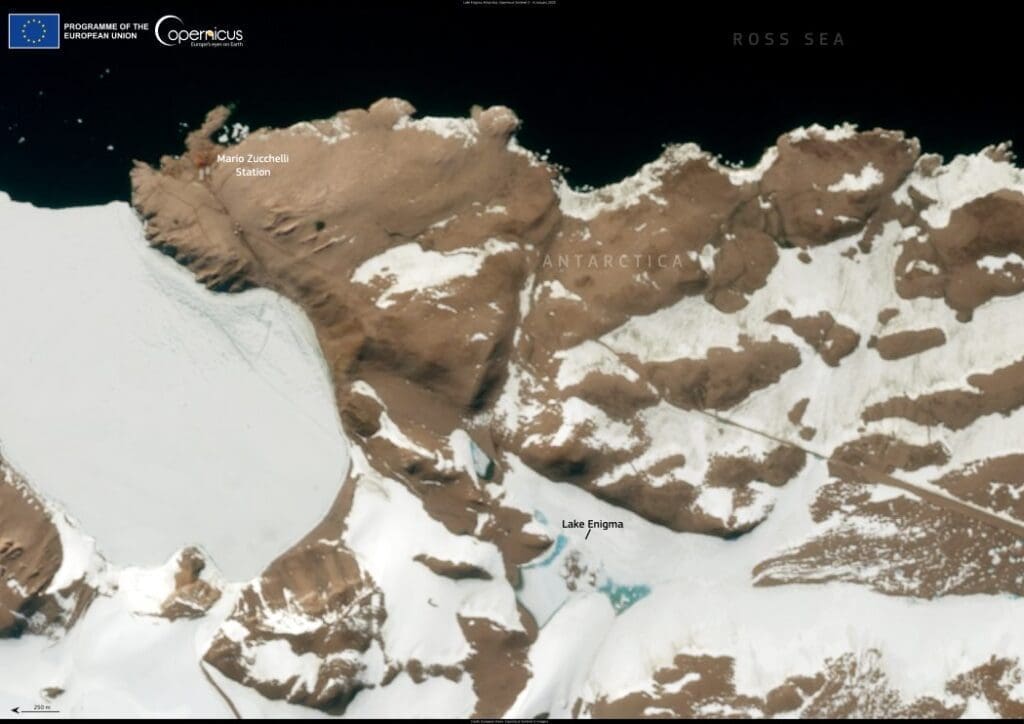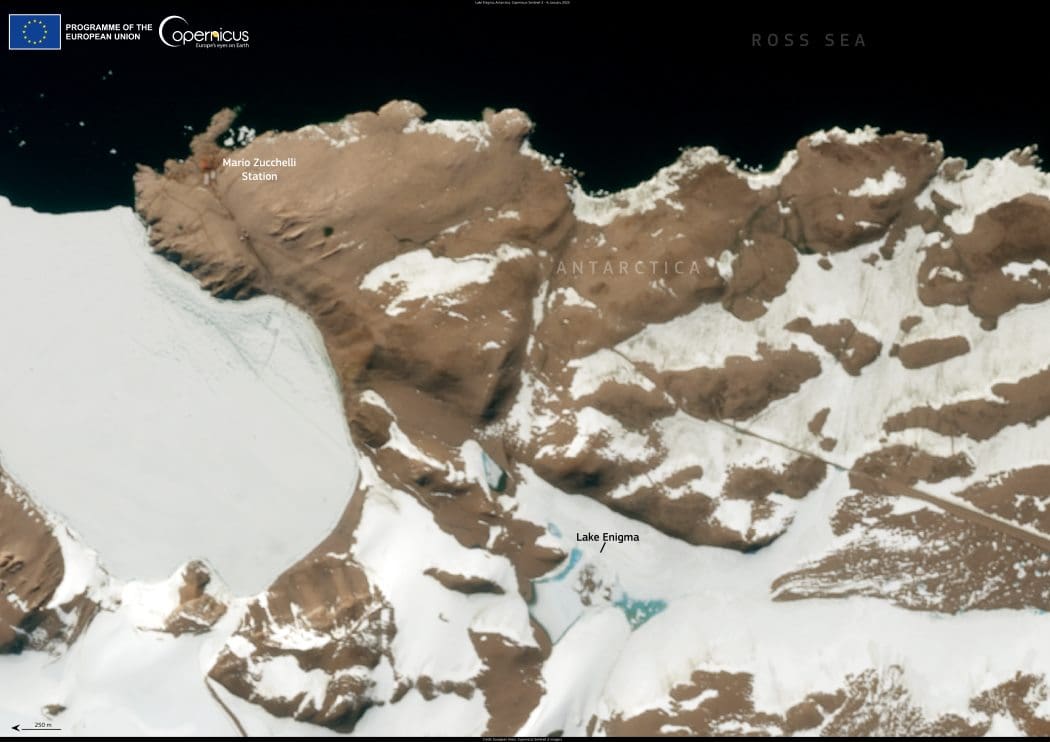Antarctica’s Lake Enigma, once thought to be entirely frozen, has revealed a hidden microbial ecosystem thriving beneath 14 meters of ice. Scientists uncovered this surprising discovery using radar surveys and drilling, identifying a vast body of liquid water teeming with life, including ultrasmall bacteria never observed before.
The lake’s harsh environment, with an average temperature of -14 °C, had previously been considered inhospitable to life. The discovery challenges these assumptions and offers valuable insights into how microbial life persists in extreme conditions. This breakthrough has implications beyond Earth, potentially guiding the search for extraterrestrial life on icy moons like Europa and Enceladus.

This striking image, captured by a Copernicus Sentinel-2 satellite on January 6, showcases the icy expanse of Lake Enigma.
Copernicus Sentinel satellites play a vital role in monitoring remote bodies of water, offering open data that supports researchers in uncovering the mysteries of Earth’s most extreme environments.
Featured image credit: European Union, Copernicus Sentinel-2 imagery




